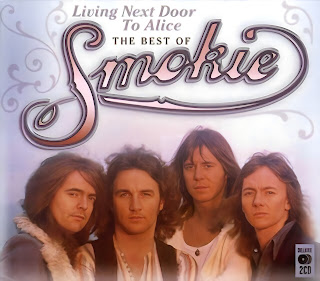Chuck Berry: Rolling Stones #96 of The 200 Greatest Singers of All Time (2023)
Born: Charles Edward Anderson Berry
October 18, 1926
St. Louis, Missouri, US
Died: March 18, 2017
Wentzville, Missouri
Occupation: Singer-songwriter, musician
Genres: Rock and roll, rhythm and blues
Instruments: Guitar, vocals
Chuck Berry brought together the basics of rock & roll with swagger, focused guitar riffs, and an emphasis on storytelling in songwriting. His showmanship influenced other rock guitarists, particularly his one-legged hop routine. Three of his hits - "Maybelline," "Rock and Roll Music," and "Johnny B. Goode" - are on the Rock & Roll Hall of Fame's list of 500 Songs That Shaped Rock and Roll.
Rolling Stone called Berry "the father of rock & roll." The magazine's list of the "500 Greatest Songs of All Time" included "Johnny B. Goode" at number 33, "Maybellene" at 102, and "Promised Land" at 342. In December 2015, Rolling Stone ranked him number 7 of its "100 Greatest Guitarists of All Time." In 2023, Chuck Berry was counted as number 96 of "The 200 Greatest Singers of All Time."
Single: Chuck Berry
Album: Chuck Berry Is on Top
B-side: Wee Wee Hours
Released: July 1955
Genre: Rock and roll, rockabilly
Label: Chess
Songwriter: Chuck Berry
"Rock & roll guitar starts here."Rolling Stones magazine
"Maybellene" was an early example of the complete rock and roll package: a youthful subject matter, the guitar as the dominant instrument, and an electrifying atmosphere.
It's one of three Chuck Berry songs in the Rock & Roll Hall of Fame's 500 Songs That Shaped Rock.
In early 1953, Berry joined Johnnie Johnson's trio and began performing a mix of blues, ballads, and country music. He introduced some of their country songs to their primarily black audience. Berry wrote:
"Curiosity provoked me to lay a lot of our country stuff on our predominantly black audience, and some of our black audience began whispering, 'Who is that black hillbilly at the Cosmo?' After they laughed at me a few times, they began requesting the hillbilly stuff and enjoyed dancing to it."
Chuck reworked Bob Wills and his Texas Playboys' recording of the Western swing fiddle tune "Ida Red," provided new lyrics, and changed the name to "Ida Mae." Berry says the uptempo dance number was his favorite to perform at racially integrated clubs.
 |
| Bob Wills |
But Chess found the original titles "Ida Red" and "Ida May" too rural for commercial success. Upon seeing a box of mascara on the studio floor, Chess came up with naming the song "Maybellene." They changed the spelling to avoid any legal issues with the cosmetics company.
Single: Chuck Berry
B-side: Blue Feeling
Released: September 1957
Recorded: May 1957
Genre: Rock and roll
Label: Chess
Songwriter: Chuck Berry
"Rock and Roll Music" by Chuck Berry reached number 6 on Billboard magazine's R&B Singles chart and topped at 8 on the Hot 100 chart. In 2004, Rolling Stone magazine ranked Berry's version 128 on its "500 Greatest Songs of All Time." It's included in the Rock and Roll Hall of Fame's "500 Songs That Shaped Rock and Roll."
Single: Chuck Berry
Album: Chuck Berry Is on Top
B-side: Around and Around
Released: March 31, 1958
Recorded: January 6, 1958
Genre: Rock and roll
Label: Chess
Label: Chess
Songwriter: Chuck Berry
"Johnny B. Goode" peaked at number two on Billboard magazine's Hot R&B Sides. The Beatles, Jimi Hendrix, Jerry Lee Lewis, The Sex Pistols, and the Grateful Dead covered it. The song was featured in the 1985 movie Back To The Future. Rolling Stone magazine counts the track as Number 7 of the "500 Greatest Songs of All Time."
"Johnny B Goode" is based on Chuck Berry's life. It tells the story of a boy from humble beginnings with a guitar talent. The line "that little country boy could play" was originally "that little colored boy can play." Berry changed it to get radio play and appeal to his white fans. Chuck lifted some guitar licks for this song: the intro came from the Louis Jordan song "Ain't That Just Like A Woman," and the guitar break came from a 1950 T-Bone Walker song called "Strollin' With Bones."








Comments
Post a Comment